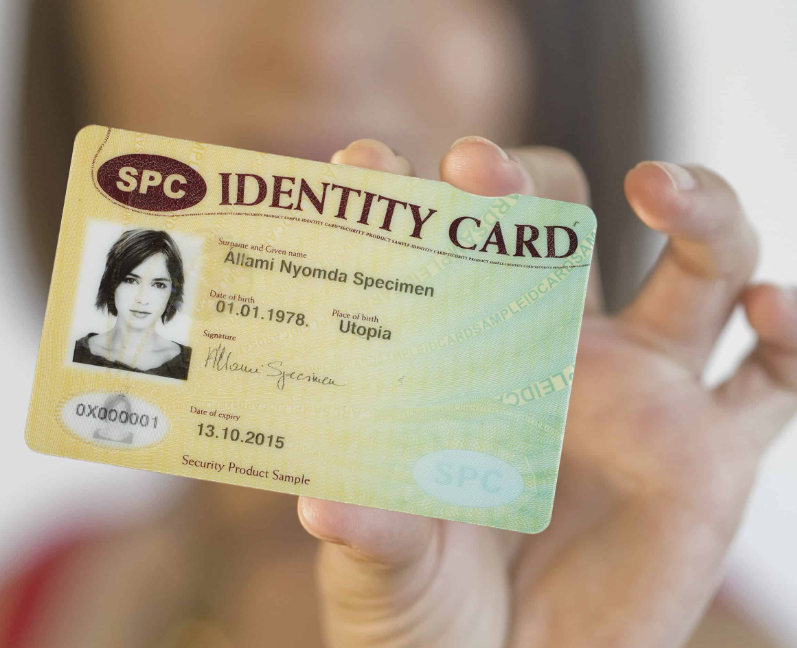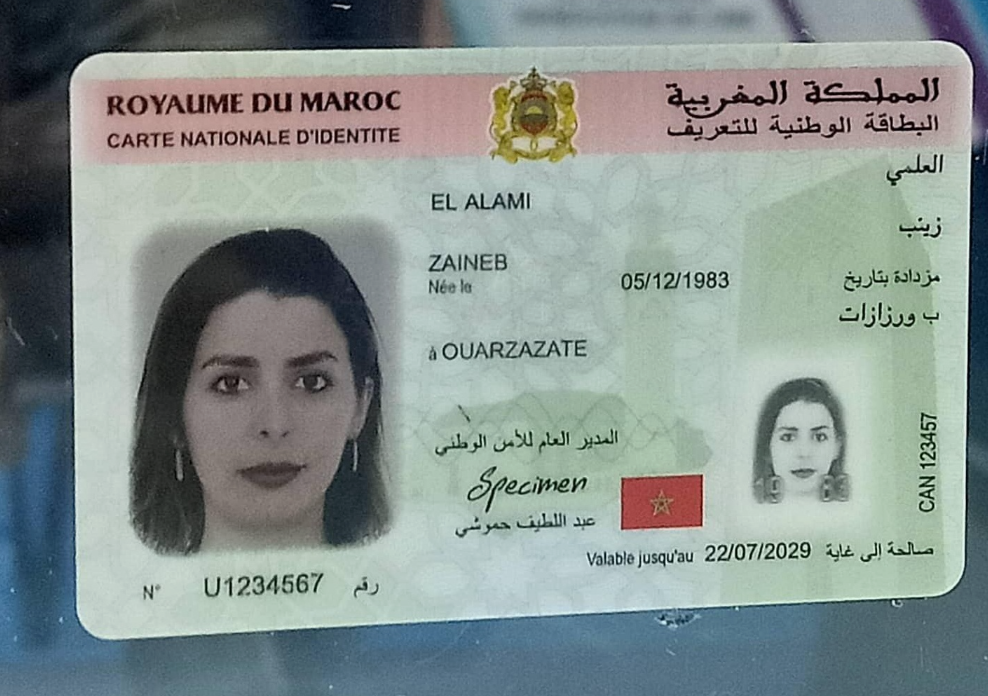This article aims to provide examples of USA SSN number and shed light on their format and purpose. Understanding the different types of identification numbers used in the United States is essential for various legal, administrative, and financial transactions.
Social Security Number (SSN): The SSN is a unique nine-digit number issued by the Social Security Administration. It serves as a crucial identifier for individuals, tracking their earnings and benefits. The format of an SSN is typically xxx-xx-xxxx, with hyphens separating the digits.
Driver’s License Number: Each state in the USA issues a driver’s license number, which serves as an official form of identification and is necessary for legally operating a motor vehicle. The format of a driver’s license number varies by state, but it usually consists of a combination of letters and numbers.
Passport Number: The passport number is a unique identifier assigned to an individual’s passport, allowing them to travel internationally. It is an alphanumeric code that follows a specific format set by the issuing authority.
Individual Taxpayer Identification Number (ITIN): The ITIN is a tax processing number issued by the IRS to individuals who are not eligible for a Social Security Number but need to file taxes. It is a nine-digit number that begins with the number 9.
Employer Identification Number (EIN): The EIN is a unique nine-digit number assigned to businesses by the IRS for tax identification purposes. It helps identify a business entity when conducting financial transactions.
State Identification Number: Some states issue a separate identification number, similar to a driver’s license number, for non-driver residents to use as identification. The format and purpose of a state identification number may vary by state.
Student Identification Number: Educational institutions often assign unique identification numbers to students for administrative purposes. These numbers help track student records, enrollments, and other academic activities.
Bank Account Number: Financial institutions assign bank account numbers to individuals to identify and track their accounts. These numbers are crucial for conducting financial transactions and managing personal finances.
Health Insurance Number: Health insurance providers assign a unique identification number to policyholders to track their coverage and claims. It helps ensure accurate processing of insurance-related transactions and medical services.
In summary, understanding the format and purpose of various USA national ID numbers is vital for individuals navigating legal, administrative, and financial processes. These identification numbers play a crucial role in verifying identity, tracking records, and facilitating smooth transactions.
Social Security Number (SSN)

The Social Security Number (SSN) is a vital identification number provided by the Social Security Administration in the United States. Comprising a distinct nine-digit combination, it serves various purposes, predominantly monitoring individuals’ earnings and benefits. Obtaining an SSN number sample is essential for demonstrating the structure and format of this identification number.
The SSN plays a vital role in various aspects of an individual’s life, including employment, taxation, and social benefits. It allows the government to accurately monitor an individual’s income and contributions to the Social Security system, ensuring they receive the appropriate benefits upon retirement or in case of disability.
Moreover, the SSN is widely used by employers for payroll and tax purposes. It helps employers accurately report wages and contributions to the government, ensuring compliance with tax regulations. Additionally, financial institutions often require the SSN for identity verification when opening bank accounts or applying for loans.
The unique nature of the SSN ensures that each individual has their own distinct identification number, preventing duplication and ensuring the accuracy of records. It is essential to safeguard this number and only share it with authorized entities to protect against identity theft and fraud.
In summary, the Social Security Number (SSN) is a crucial identification number issued by the Social Security Administration in the United States. It serves as a unique nine-digit identifier that allows for accurate tracking of individuals’ earnings and benefits, ensuring proper taxation and social benefit distribution.
Driver’s License Number
The driver’s license number is a crucial form of identification issued by each state in the United States. It is a unique alphanumeric code that is required for individuals to legally operate a motor vehicle. This number serves as a means of identification and helps law enforcement and other authorities verify the driver’s information.
Driver’s license numbers typically follow a specific format set by each state. While the exact format may vary, it usually includes a combination of letters, numbers, and sometimes special characters. The structure of the driver’s license number may provide information about the issuing state, the driver’s personal information, and other relevant details.
It is important to note that driver’s license numbers are sensitive and should be kept confidential to prevent identity theft or fraud. Individuals should exercise caution when sharing their driver’s license number and only provide it to trusted entities when necessary.
Passport Number
The passport number is a crucial element of an individual’s passport, serving as a unique identifier that allows them to travel internationally. This alphanumeric code holds significant importance as it plays a vital role in identifying the passport holder and verifying their identity during international travel.
A passport number typically consists of a combination of letters and numbers, varying in length depending on the issuing country. It is designed to be unique to each passport, ensuring that no two passports have the same number. This uniqueness is essential for maintaining the integrity of the passport system and preventing identity fraud.
When traveling abroad, individuals are required to present their passport and have their passport number recorded by immigration authorities. This number is used to track and verify their travel history, ensuring that they comply with immigration laws and regulations.
Furthermore, the passport number is often linked to an individual’s personal information, including their name, date of birth, and nationality. This connection allows authorities to cross-reference the passport number with the corresponding personal details, enhancing security and preventing unauthorized use of passports.
It is important to note that the format and structure of passport numbers can vary across different countries. Some countries may use a combination of letters and numbers, while others may only use numbers. Additionally, the length of the passport number can also differ, ranging from six to nine characters.
In summary, the passport number serves as a unique identifier for an individual’s passport, enabling them to travel internationally. It plays a crucial role in verifying identity, maintaining the integrity of the passport system, and ensuring the security of international travel.
Individual Taxpayer Identification Number (ITIN)

The Individual Taxpayer Identification Number (ITIN) is a tax processing number issued by the Internal Revenue Service (IRS) to individuals who are not eligible for a Social Security Number but need to file taxes. This includes non-resident aliens, foreign nationals, and dependents or spouses of U.S. citizens or residents. The ITIN serves as a unique identifier for tax purposes and allows individuals to comply with their tax obligations.
To obtain an ITIN, individuals must complete and submit Form W-7 to the IRS along with supporting documentation that verifies their identity and foreign status. The ITIN application process requires individuals to provide proof of their identity, such as a valid passport or national identification card, and documentation to establish their foreign status, such as a visa or immigration papers.
Once approved, the IRS will issue an ITIN to the individual, which can be used for tax filing purposes. It is important to note that an ITIN is not a form of work authorization or eligibility for Social Security benefits. Its sole purpose is for tax reporting and compliance.
Individuals with an ITIN must include this number on their tax returns and any related documents. Failure to do so may result in processing delays or rejection of the tax return. It is essential to accurately report income, deductions, and credits when filing taxes with an ITIN to ensure compliance with U.S. tax laws.
Employer Identification Number (EIN)
The Employer Identification Number (EIN) is a crucial identifier for businesses in the United States. This unique nine-digit number is assigned by the Internal Revenue Service (IRS) for tax identification purposes. It serves as a way to track and identify businesses when it comes to tax-related matters.
The EIN is essential for businesses as it helps them fulfill their tax obligations and comply with IRS regulations. It is required for various purposes, such as filing tax returns, opening business bank accounts, hiring employees, and applying for business licenses and permits.
When a business applies for an EIN, the IRS assigns a unique nine-digit number to that specific business entity. This number is used to identify the business and is associated with its legal and financial activities. It is important to note that each business entity, including corporations, partnerships, and sole proprietorships, should have its own EIN.
The format of an EIN is a nine-digit number, usually displayed in the following format: XX-XXXXXXX. The first two digits of the EIN represent the geographic location or IRS processing center where the EIN was assigned. The remaining seven digits are randomly generated and unique to the business.
Having an EIN is not only necessary for tax purposes but also provides credibility and legitimacy to a business. It distinguishes a business from an individual and helps establish its separate legal entity. It is recommended that businesses obtain an EIN as soon as they are formed or when they start hiring employees or engaging in financial transactions.
State Identification Number
State Identification Numbers are unique identification numbers issued by some states to non-driver residents for identification purposes. These numbers serve as an alternative form of identification for individuals who do not possess a driver’s license. Similar to a driver’s license number, a state identification number helps verify a person’s identity and is often required for various official transactions and processes.
State identification numbers are typically issued by the Department of Motor Vehicles or a similar state agency responsible for issuing driver’s licenses. These numbers are assigned to individuals who do not drive but still need a valid form of identification. Non-driver residents, such as senior citizens, individuals with disabilities, or those who simply choose not to drive, can obtain a state identification card that bears their unique state identification number.
Having a state identification number allows non-driver residents to access various services and benefits that require identification, such as opening a bank account, applying for government assistance, or proving age or residency for certain purposes. It provides a reliable and standardized means of identification for individuals who do not possess a driver’s license.
State identification numbers are usually formatted similarly to driver’s license numbers, with a combination of letters and numbers. The specific format may vary depending on the state issuing the identification number. It is important to note that state identification numbers are specific to each state and cannot be used interchangeably between states.
If you are a non-driver resident in a state that issues state identification numbers, it is advisable to obtain one to ensure you have a valid form of identification for various official purposes. State identification numbers offer convenience and peace of mind, allowing individuals to prove their identity and access services without the need for a driver’s license.
Student Identification Number

Students often receive a unique identification number from their educational institution, used for various administrative purposes.
When students enroll in an educational institution, they are typically assigned a student identification number. This number serves as a unique identifier for each student and is used for various administrative purposes throughout their academic journey.
The student identification number is an essential component of the institution’s record-keeping system. It allows administrators to efficiently manage student information, including enrollment, grades, attendance, and financial records. With this identification number, institutions can easily track and update student records, ensuring accurate and up-to-date information.
Moreover, the student identification number is often required for accessing campus facilities, such as libraries, computer labs, and sports facilities. It serves as a form of identification for students, allowing them to prove their affiliation with the institution and access the resources and services provided.
Additionally, the student identification number may be used for other administrative purposes, such as registering for classes, applying for scholarships or financial aid, and participating in extracurricular activities. It streamlines various processes and ensures that students can easily navigate the administrative aspects of their educational experience.
Overall, the student identification number plays a crucial role in the efficient management of student records and administrative processes within educational institutions. It provides a unique identifier for each student, simplifying tasks such as record-keeping, facility access, and participation in various academic and non-academic activities.
| Benefits of Student Identification Number |
|---|
| Efficient record-keeping |
| Streamlined administrative processes |
| Access to campus facilities |
| Identification for academic and non-academic activities |
Bank Account Number
Bank account numbers play a crucial role in the financial system, as they are assigned to individuals by financial institutions to identify and track their accounts. These unique numbers serve as a means of distinguishing one account from another and are essential for various banking transactions.
When you open a bank account, the financial institution will provide you with an account number that is specific to your account. This number is typically a combination of digits and may also include special characters or hyphens for formatting purposes. It is important to keep your bank account number confidential to prevent unauthorized access to your funds.
Bank account numbers are used for a wide range of purposes, including depositing and withdrawing funds, making electronic transfers, setting up direct deposits, and managing online banking activities. They also enable financial institutions to track and monitor transactions associated with your account, ensuring accurate record-keeping and facilitating efficient banking operations.
It is worth noting that different countries and financial institutions may have varying formats for bank account numbers. For example, some countries may use longer or shorter account numbers, while others may include additional codes or identifiers to specify the bank branch or type of account.
In summary, bank account numbers are unique identifiers assigned by financial institutions to individuals, allowing for the identification and tracking of their accounts. These numbers are vital for conducting various banking activities and should be kept confidential to protect against unauthorized access.
Health Insurance Number
Health insurance providers play a crucial role in ensuring individuals have access to necessary medical care. To efficiently manage policies and track coverage and claims, health insurance companies assign a unique identification number to each policyholder. This identification number serves as a reference point for all interactions and transactions related to the individual’s health insurance.
The health insurance number acts as a unique identifier, allowing providers to accurately identify policyholders and retrieve their specific policy details. It helps streamline administrative processes and ensures that policyholders receive the appropriate benefits and services they are entitled to.
With this identification number, health insurance providers can track the coverage and claims of policyholders, ensuring that medical expenses are appropriately covered and reimbursed. It also helps prevent fraud and identity theft by verifying the authenticity of policyholders and protecting their personal information.
For policyholders, the health insurance number is essential when seeking medical services. It allows healthcare providers to verify insurance coverage and bill the insurance company directly, reducing the need for individuals to pay out-of-pocket and seek reimbursement later.
In summary, the health insurance number is a vital component of the healthcare system, facilitating efficient communication and coordination between policyholders, healthcare providers, and insurance companies. It ensures that individuals receive the necessary medical care and that insurance claims are processed accurately and promptly.
Social Security Number (SSN)
The Social Security Number (SSN) is a unique nine-digit number issued by the Social Security Administration to track individuals’ earnings and benefits. It serves as a crucial form of identification for various purposes, including employment, taxation, and accessing government services. The format of an SSN is typically XXX-XX-XXXX, with the first three digits representing the area number, the next two digits representing the group number, and the final four digits representing the serial number.
Driver’s License Number
Each state in the USA issues a driver’s license number, which serves as a form of identification and is required to legally operate a motor vehicle. The format of a driver’s license number varies by state, but it generally consists of a combination of letters and numbers. This unique identifier helps law enforcement and other authorities verify an individual’s driving privileges and identity.
Passport Number
A passport number is a unique identifier assigned to an individual’s passport, allowing them to travel internationally. It is a crucial component of the passport, along with personal information such as the individual’s name, date of birth, and nationality. Passport numbers typically consist of a combination of letters and numbers, varying in length depending on the issuing country.
Individual Taxpayer Identification Number (ITIN)
The Individual Taxpayer Identification Number (ITIN) is a tax processing number issued by the IRS to individuals who are not eligible for a Social Security Number but need to file taxes. It is used for tax purposes only and does not provide work authorization or eligibility for Social Security benefits. The format of an ITIN is typically XXX-XX-XXXX, similar to an SSN.
Employer Identification Number (EIN)
The Employer Identification Number (EIN) is a unique nine-digit number assigned to businesses by the IRS for tax identification purposes. It is used to identify a business entity for tax filing and reporting purposes. EINs are necessary for businesses to open bank accounts, hire employees, and comply with federal tax regulations. The format of an EIN is typically XX-XXXXXXX, with the first two digits representing the state where the business is located.
State Identification Number
Some states issue a separate identification number, similar to a driver’s license number, for non-driver residents to use as identification. These state identification numbers serve as an alternative form of identification for individuals who do not have a driver’s license or other official identification documents. The format of a state identification number varies by state, but it generally consists of a combination of letters and numbers.
Student Identification Number
Students often receive a unique identification number from their educational institution, used for various administrative purposes. These student identification numbers help schools track student records, enrollment, and academic progress. The format of a student identification number varies by institution, but it is typically a combination of letters and numbers.
Bank Account Number
Bank account numbers are assigned to individuals by financial institutions to identify and track their accounts. These numbers are essential for conducting financial transactions, such as deposits, withdrawals, and transfers. The format of a bank account number varies by bank, but it generally consists of a combination of numbers.
Health Insurance Number
Health insurance providers assign a unique identification number to policyholders to track their coverage and claims. This health insurance number helps healthcare providers and insurance companies verify an individual’s eligibility for benefits and process claims. The format of a health insurance number varies by insurance provider, but it generally consists of a combination of letters and numbers.



